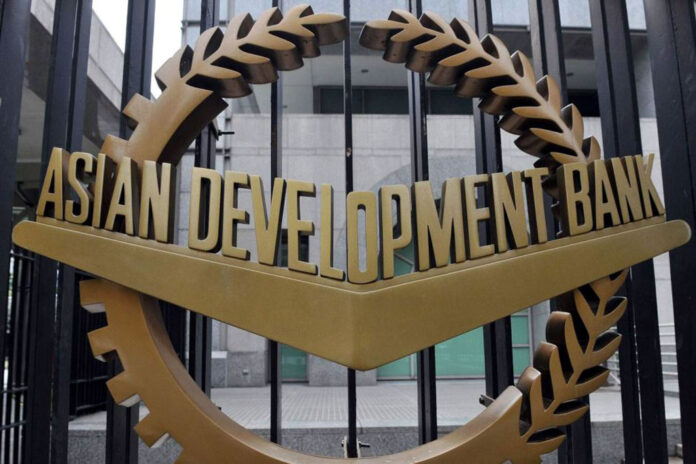ISLAMABAD: Signalling that Pakistan’s economy is showing signs of recovery owing to the government’s fiscal consolidation and austerity measures, the Asia Development Bank (ADB), in its flagship economic publication titled ‘Asian Development Outlook-Update 2019′, has projected Pakistan’s GDP growth rate at 2.8pc for the fiscal year 2019-20.
Though slower than the last fiscal year (2018-19), the growth rate projections by ADB are higher than the GDP target of 2.4pc set by the incumbent government for the FY20. The bank has projected inflation rate for Pakistan at 12pc.
It may be noted that the 2.8pc GDP growth for Pakistan is the lowest in South Asia while 12pc inflation is the highest among the bloc of eight nations.
As per the report, fiscal adjustments are expected to suppress domestic demand, contraction of which would keep growth in manufacturing subdued. However, the agriculture sector is expected to recover from weather-induced contraction this year with major incentives in the government’s agriculture support package included in the budget for FY2020.
On the external front, the ADO noted, trade deficit shrunk by nearly half in July, the first month of FY2020, from $3.4 billion a year earlier to $1.8 billion.
“With further narrowing of the trade deficit and a continued positive trend in workers’ remittances, the current account deficit is projected to narrow further to 2.8pc of GDP in FY20,” it said. “Import payments will remain subdued, reflecting weak economic activity and the pass-through of recent rupee depreciation against US dollar. The real effective exchange rate is now thought to be near equilibrium, and a lower and more stable rupee is expected to improve export competitiveness.”
The foreign capital inflows are expected to increase, the report said, adding that the foreign direct investment should revive, as investor confidence was restored with the implementation of the IMF’s stabilisation and reform programme.
“This should also help bring additional finance from multilateral institutions and other international partners.”
Along with the activation of a Saudi oil facility with potential disbursements of $1 billion in the current fiscal year, these developments are expected to raise foreign exchange reserves to reach more than $10 billion by the end of FY2020, it added.
The report said in order to restore macroeconomic stability, the government plans to catalyze significant international financial support and promote sustainable and balanced growth under a 3-year economic stabilization and reform programme with the International Monetary Fund.
Fiscal consolidation under the programme aims to reduce the large public debt, besides expanding social expenditure, establishing a flexible exchange rate regime to restore competitiveness, and rebuilding official reserves.
The economic reform programme supported by the IMF envisages a multi-year strategy for revenue mobilization to pare public debt to a sustainable level. The budget assumes tax revenue increased to equal 14.3pc of GDP. With non-tax revenue projected at 2.3pc of GDP in FY2020, total revenue is expected to increase to 16.6pc of GDP.
Expenditure in FY20 is projected to equal 23.8pc of GDP with an increase of 1.8 percentage points in current spending to cover larger interest payments and higher allocations for social spending. The budget deficit in FY20 is expected to equal 7.2pc of GDP, 1.7 percentage point lower than the FY2018 outcome.
According to the report, Pakistan needs to press ahead with macroeconomic and structural reforms to revitalize public sector enterprises; improve revenue collection; ensure energy and water security.
“The financial account surplus narrowed by 16.2pc in FY19. The $2.3 billion fall is mostly attributable to $1.8 billion less foreign direct investment owing to policy uncertainty and also due to the winding down of energy and infrastructure projects in the China Pakistan Economic Corridor,” it concluded.

























well said…inflation is increasing in Pakistan day today